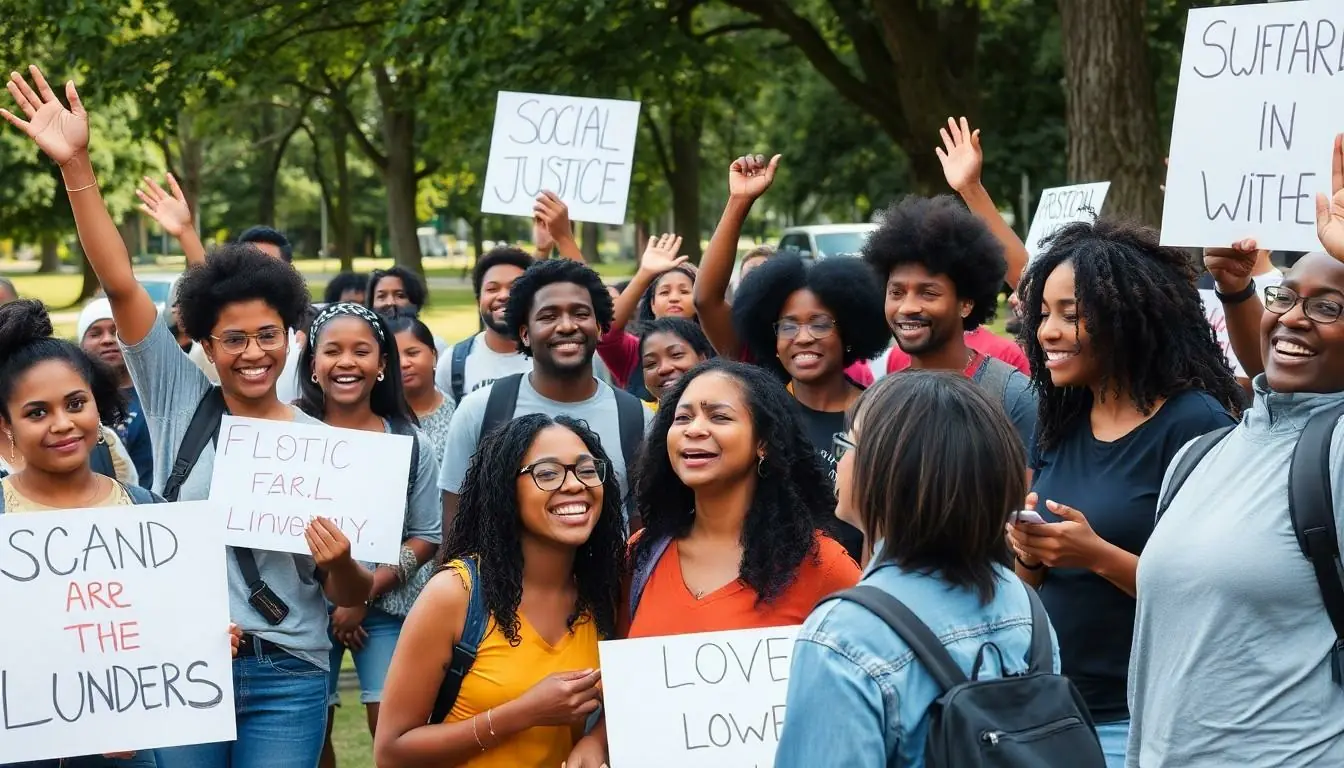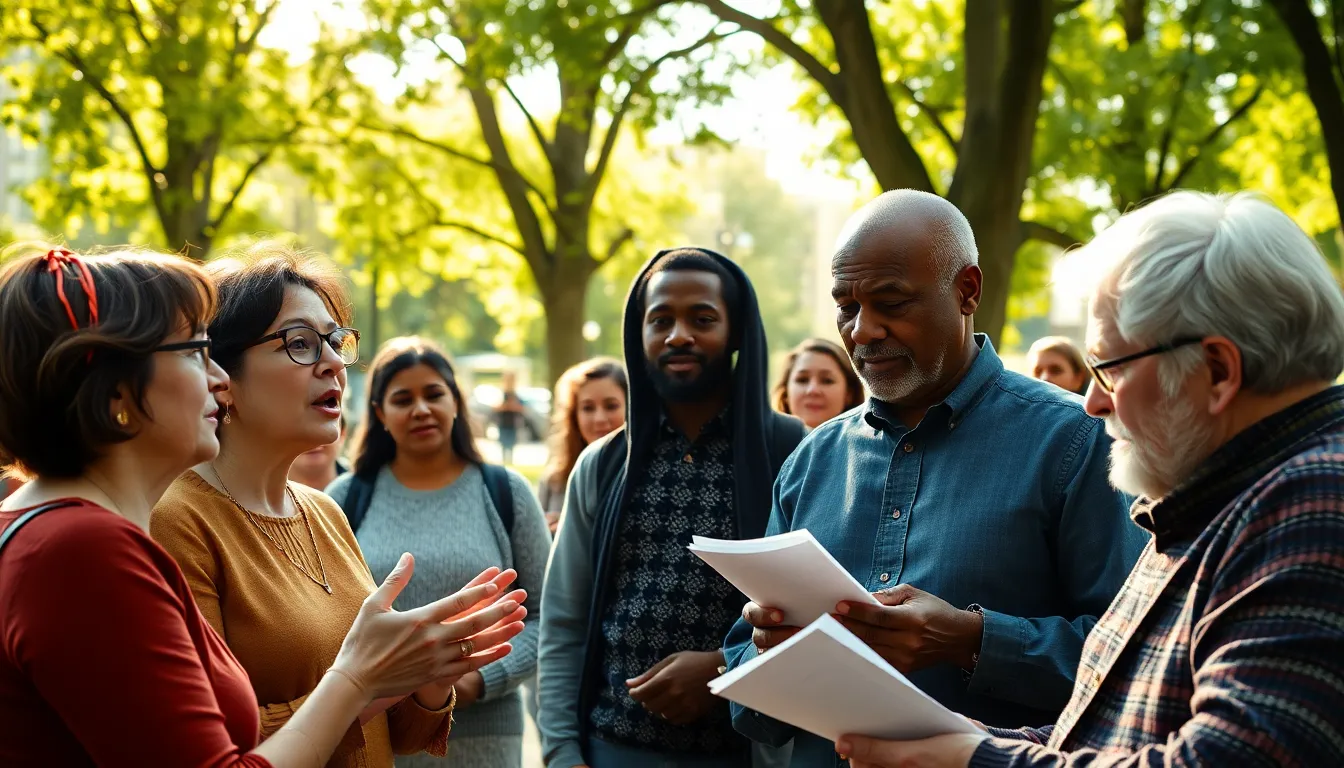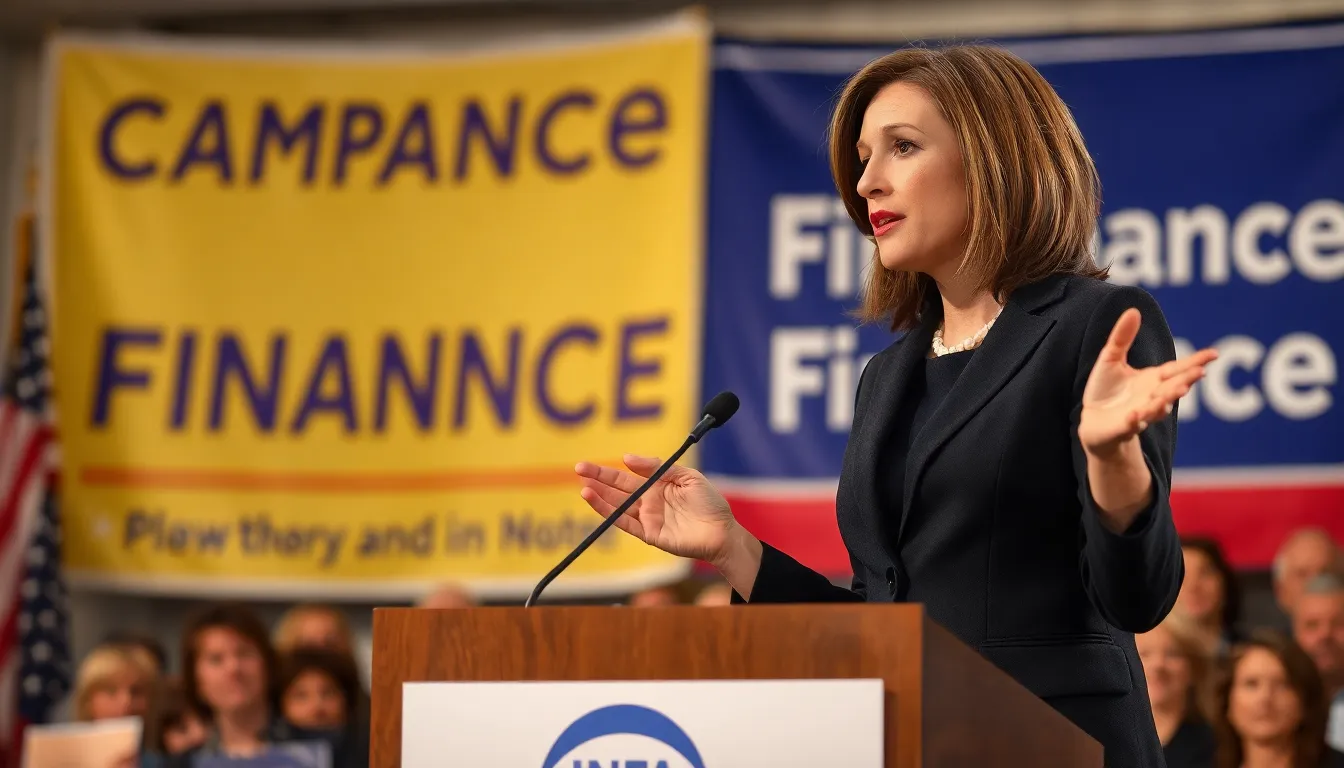In a world where political debates can feel like a game of dodgeball—everyone’s throwing opinions and trying to avoid getting hit—understanding political cultures that prioritize the collective good is key. Some cultures treat government like a superhero, swooping in to save the day, while others might see it more like that quirky uncle at family gatherings—well-meaning but often misunderstood.
Table of Contents
ToggleUnderstanding Political Culture
Political culture defines how societies view government and the collective good. Various cultures prioritize government differently, influencing their political dynamics. Some cultures embrace government as a protector and promoter of collective well-being, emphasizing social responsibility and community engagement.
Collectivist cultures promote the idea that the group’s needs outweigh individual desires. In these societies, citizens often expect government to play an active role in ensuring equality and welfare benefits. This expectation stems from historical experiences shaped by community-oriented values.
In contrast, individualistic cultures value personal autonomy. People in these societies generally expect government to create an environment where they can pursue their interests with minimal interference. Here, the emphasis lies on self-reliance and personal achievement rather than collective welfare.
Government perception also varies in response to historical and social contexts. For instance, nations with a history of social movements or communal cooperation may lean towards a government-centric perspective. Citizens often view government actions as crucial to resolving societal issues like poverty or health care. A study in several countries shows that those who prioritize community well-being tend to support policies that enhance social safety nets.
Analyzing political culture requires insight into citizens’ expectations and beliefs. Understanding how different societies perceive the role of government can clarify political discourse and policy development. Assessing perspectives on collective good aids in navigating contemporary political landscapes effectively.
Political culture significantly impacts how legislation and governance structures evolve over time. It shapes priorities affecting economic policies, social programs, and civil liberties, making awareness of these cultural nuances essential for informed discussions on governance.
Key Features of Political Culture

Political culture significantly influences how societies view government and the collective good. Understanding these features allows for a deeper grasp of governance and its expectations.
Definition of Government and Collective Good
Government refers to the organized system through which a society makes and enforces laws. The collective good embodies the benefits enjoyed by groups, emphasizing societal welfare over individual desires. Collectivist cultures see government as a protector of this collective well-being, advocating for equitable distribution of resources. Values in these cultures prioritize collaboration, where individuals trust government to address societal needs effectively. Policies often reflect a strong commitment to social justice and community support.
Role of Civic Engagement
Civic engagement plays a pivotal role in shaping political culture. It encompasses participation in community activities, voting, and advocacy for social issues. Engaged citizens contribute to a thriving democracy, pressing governments to act in the community’s interest. Their involvement can lead to heightened accountability and responsiveness from those in power. Active participation fosters a sense of ownership among citizens, creating a feedback loop where government actions align with public needs. Overall, civic engagement strengthens the bond between individuals and institutions, demonstrating the importance of government in promoting the collective good.
Types of Political Cultures
Political culture significantly shapes perceptions about government and the collective good. Understanding the two primary types—individualistic and collectivistic—offers clarity on how societies interact with governance.
Individualistic Political Culture
Individualistic political culture emphasizes personal autonomy. Citizens in these societies often prioritize self-reliance and personal freedom. Expectation from government remains limited, focusing instead on protecting individual rights. In individualistic cultures, success is frequently attributed to personal effort rather than collective action. Moreover, policies typically support market-driven solutions over state interventions. This perspective fosters a sense of independence, leading individuals to view government as a facilitator of personal aspirations rather than as an active participant in their lives.
Collectivistic Political Culture
Collectivistic political culture values the group’s needs above individual desires. Societies embracing this culture view the government as a crucial entity for ensuring equality and welfare. The expectation involves active government participation in addressing social issues and promoting social justice. Policies reflect commitment to community support, enhancing civic engagement and cooperation. In such environments, citizens believe in the collective good, strengthening the bond between individuals and institutions. Government serves as a protector of societal welfare, thereby fostering a sense of unity and shared responsibility.
Case Studies of High-Value Political Cultures
Scandinavian countries exemplify a political culture that values government and the collective good highly. These nations, including Sweden, Norway, and Denmark, prioritize social welfare and equality. With progressive policies, Scandinavian governments ensure access to healthcare, education, and social security. High tax rates fund these robust welfare systems. Citizens actively engage in civic duties, fostering a sense of community and shared responsibility. The strong belief in collective action reflects their commitment to social justice. Collective well-being remains central, promoting a cohesive society where government actions align with citizens’ needs.
East Asian societies, such as Japan and South Korea, also demonstrate a high value placed on government and the collective good. These cultures emphasize harmony, family, and community over individualism. Both nations implement policies that promote economic growth and social stability. Governance focuses on equitable distribution of resources, enhancing quality of life. Citizens typically expect government intervention in various sectors, including education and employment. Civic engagement mirrors traditional values, strengthening social ties. Ultimately, the commitment to collective welfare shapes policies that address societal challenges effectively.
Political culture plays a vital role in shaping how societies view government and the collective good. In collectivist cultures, there’s a strong expectation for government to act as a protector and promoter of social welfare. This perspective fosters civic engagement and reinforces the bond between citizens and their institutions. Countries like Sweden and Japan exemplify this commitment through progressive policies and active citizen participation. Understanding these cultural nuances is essential for navigating political landscapes and anticipating citizens’ expectations from their governments. The interplay between individual and collective values continues to influence governance and policy development across the globe.



